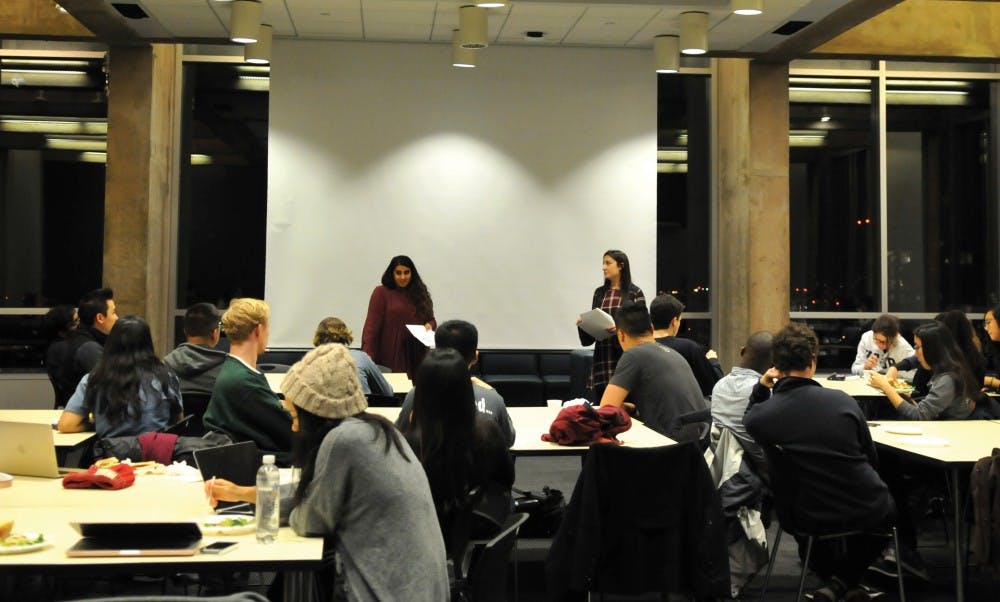
In the rooftop lounge of Harnwell College House on Nov. 28, Penn students gathered to visualize the last time they emotionally confided in someone.
As students opened their eyes and gathered their thoughts, Isra Abuyounis, a social work intern at Penn's Counseling and Psychological Services, calmly asked, “How did that feel?”
One student said they felt emotionally vulnerable. Another said they were just relieved to have a brief moment of respite away from their studies. The workshop called “How to Listen to Your Friends,” which was led by CAPS, taught students how to be more mindful and receptive to peers who are struggling with mental strain.
According to a statement from Leo Charney, the executive director of the Provost's Office, the event in Harnwell is one of a range of University-associated programs across Penn's campus. These programs have been organized as part of the new “Campaign for Wellness," which operates under the University's Campaign for Community.
In the statement, Charney listed more than 10 events associated with the campaign, either being held by CAPS in on-campus housing or student-run cultural groups. However, this list was not available on the Campaign for Community website or on other University platforms.
College junior Niyathi Chakrapani, who organized the workshop at Harnwell, said she did not know that the workshop was associated with the campaign. She said the event received funding from Penn Wellness and the Harnwell College House fund, but not from other administrative departments.
Penn President Amy Gutmann announced the Campaign for Wellness in a University-wide email as a direct follow-up to the "Campus Conversation" held on Oct. 30.
The discussion, which was held a month ago to address what Penn can do to foster resilience in the face of student deaths, natural disasters and political instability, consisted of a brief interview with Gutmann and Provost Wendell Pritchett, a panel with select faculty members, and small group discussions. At the end of the event, attendees were invited to submit "reflections and ideas" on the back of the program booklet to "help guide followup conversations and planning."
In her follow-up email on Nov. 20, Gutmann said Penn had drawn on the feedback from the conversation to design more wellness programming in the college houses and Penn Recreation. Some of these initiatives have already started in the Quadrangle.
Marilynne Diggs-Thompson, the Riepe house dean and a professor of anthropology, said in an email that she decided to organize a CAPS-led mental wellness session for her student residents the night of the Campus Conversation. Diggs-Thompson also said that after the first wellness session, she reached out to a CAPS counselor regarding holding monthly sessions in the building.
This month, Riepe has also hosted a "Positive Affirmation" session, which was led by the student-run wellness group, Active Minds. This was another event that Charney listed as associated with the Campaign for Wellness. President of Active Minds and College junior Vivian Dai confirmed that the event was associated with the campaign.
“We felt that it was important to have students speak to people their own ages and have a more relational model of care,” Alaina Bailey, the Riepe house coordinator, said in an email. “It creates a more holistic community.”
Other college house administrators expressed a similar commitment to expand wellness programming.
“All of our Houses do various programs focused on the health and well-being of Penn students," Ryan Keytack, the College Houses and Academic Services director of four-year houses and residential programs, said in an email. "The Campus Conversation at Irvine reinforced the need for these types of programming options.”
The Daily Pennsylvanian is an independent, student-run newspaper. Please consider making a donation to support the coverage that shapes the University. Your generosity ensures a future of strong journalism at Penn.
Donate







